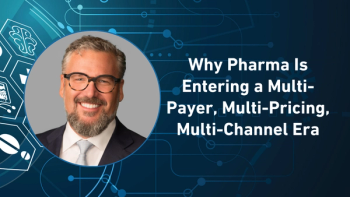
- Pharmaceutical Commerce - January/February 2009
The Rising Tide of Personalized Medicine
Targeted treatments for patients may yield economic benefit for payors as well as drug and diagnostics makers
Few technologies could be more germane to the anticipated transformation of
pharmaceutical business models than personalized medicine: The nimble development of
treatments based on molecular analysis of a patient all but turns on its head the
cumbersome traditional model of pursuing high-payoff, population-wide blockbusters.
Indeed, such customization would appear at odds with any effort for which cost is a
concern. Yet a recent analysis indicates that, when viewed in the broader perspective
encompassing the healthcare industry as a whole, the benefits of such a transformation
will likely extend beyond the patients receiving the care to all key stakeholders.
Analysts at Deloitte LLP’s life sciences industry group, in conducting a
to assess
the economic value proposition of personalized medicine, found good news for patients,
diagnostics companies, and drug makers. There is benefit for payors, too, but they’ll have to wait a little longer than the other stakeholders to enjoy it.
Researchers first conducted a literature review of the cost/benefits of personalized
medicine. Some 300 articles later, they developed the basis for generating two scenarios
for how personalized medicine might affect current care processes, and the associated
costs and benefits of current therapies. In the first scenario, a personalized medicine
diagnostic test alters the standard course of therapy. In the second, such a test results in
the introduction of a companion targeted therapy. Conditions including HIV/AIDS and
breast cancer were studied.
Variations in the level of evidence reported in the literature precluded a meta analysis,
according to the report. Instead, researchers focused on case studies useful in developing a personalized medicine ROI framework.
Patients are the biggest winners
Analysts concluded that patients stand to gain the most by realizing significant ROI
within the shortest time. However, such therapies will likely be more expensive than
traditional treatments and so may be accompanied by greater upfront costs. But long-term benefits may create an incentive for adoption.
Providers will benefit due to improved patient care. But reimbursement issues will need
to be worked out with payors, who may want to factor into the equation personalized
medicine products as the employer-sponsored model evolves into a retail health insurance model, providing the opportunity to include customized products. Payors received a marginal benefit in the study, but it required six years to achieve.
Plans may also benefit as personalized medicine helps slow the advancement of
conditions that left untreated result in more expensive acute care interventions and
institutional care.
Drug and diagnostics makers, for their part, may need to consider “more virtual” R&D
activities, the report said, to address smaller markets with more targeted therapies to
reduce such costs. Manufacturers may also need to collaborate with affiliates, such as
academic medical centers and research organizations. The continued trend toward M&A
and partnerships may also pick up as personalized diagnostic companies begin being
viewed as prime investments or acquisition targets. In addition, strategies for integrating
marketing, sales, and distribution with companion diagnostics will need to be developed.
“The U.S. health care system will confront an array of challenges to expedite
development of personalized medicine. Our report examines opportunities to overcome
these obstacles, from access to capital to stimulate increased R&D, to how to justify
coverage by health plans often pressured for short-term savings,” says Terry Hisey, vice
chairman and U.S. industry leader for Deloitte’s life sciences industry group, in an
announcement.
Articles in this issue
over 16 years ago
Closing The Circle On Patient Adherenceover 16 years ago
3PLs Rise in Forward-Thinking Supply Chain Modelsover 16 years ago
A Pitched Battle in Cardiovascular Drug Marketingover 16 years ago
Wyeth Loses Supreme Court Case Over 'Implied' Pre-Emptionover 16 years ago
Syringe Design Gets a Makeoverover 16 years ago
Refinements in Cold Chain Secondary Packagingover 16 years ago
Inmar Rebrands Reverse-Logistics and Related Business Unitsover 16 years ago
The Packaging Contribution to Patient Adherenceover 16 years ago
Moving the Dial on Patient AdherenceNewsletter
Stay ahead in the life sciences industry with Pharmaceutical Commerce, the latest news, trends, and strategies in drug distribution, commercialization, and market access.




